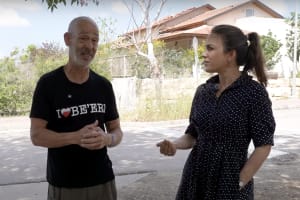Two explosions rocked Israeli capital – are we on the verge of a new intifada?
Maybe not, but Israel has a vested interest in stabilizing a weakening Palestinian Authority before violence spins out of control, analysts say

When bombs went off at two separate Jerusalem bus stations this morning, many Israelis were immediately taken back to the early 2000s when Palestinian suicide bombers made all too frequent attacks throughout the country in what became known as the second intifada (Palestinian uprising).
The incessant wailing of ambulances, police and other first-responder sirens triggered fears of a return to that time – from 2000 to 2005 – when such attacks on buses and in crowded venues were the norm in Israeli cities and towns. The last actually bomb used was in 2011.
However, two Israeli security analysts said that the coordinated double bombing today does not indicate Palestinian plans for a long-term escalation or a new intifada.
Yet.
“It’s not done by somebody that just woke up this morning and decided to detonate bus stops, but it’s yet not the second intifada. We’ve been to these places, and we’re going to be more in these places,” said Avi Melamed, a senior Arab affairs analyst and former IDF intelligence official. "It’s not the first time and it’s not the last time.”
Today’s attack, which left one teen dead and several people injured, required surveillance, planning and coordination. It follows months of simmering tensions, violence and terror attacks. In the spring, a spate of lone-wolf attacks in Israel – including stabbings, shootings and car rammings – left 19 people dead.
Terrorism is also surging in the West Bank where a relatively new terror group, Lion's Den, has emerged. Mainly confined to Judea/Samaria, Lion’s Den targets the Israeli military, as well as Israeli settlements and civilians there.
So far, no group has claimed responsibility for today’s attack, but Israeli investigators believe a terror cell planned and coordinated its timing.
“I would expect the Israeli intelligence services to be able to quite rapidly know who is involved in these attacks and act accordingly. But we should all be very clear about it – it’s not something that is going to disappear regardless of the government in power,” Melamed said in an interview with The Jerusalem Press Club.
In fact, the new government should avoid promoting "revolutionary steps" that would further incite violence, IDF Col. (res.) Dr. Michael Milshtein said.
“If the first moves of this government will be focused on the Temple Mount, will be focused on changing the status quo in the West Bank, will be focused on weakening and maybe punishing the P.A. [Palestinian Authority] … this can cause a really tense situation in the P.A. and we will see a rise of the rate of violence in the P.A.,” he predicted during a briefing hosted by MediaCentral.
“The results of such a policy will be traumatic for Israel, for the Palestinians and, of course, can cause a spread of this escalation – not only to the West Bank, but also to Gaza and even to the Arab sector here in Israel,” added Milshtein, a former advisor for COGAT (Coordinator of Government Activities in the Territories).
Rather, Israel has a vested interest in stabilizing the weakening P.A., Milshtein said.
He said that if he were advising Prime Minister-designate Benjamin Netanyahu, he would recommend finding a broad and long-term strategy for solving the Palestinian crisis.
“I would advise him not to be revolutionary, but to keep the coordination between the Palestinian Authority and Israel,” he said, explaining that a decent standard of living and freedom of work and travel will promote calm among most of the population.
Melamed also said it would be “unwise of Israel to further destabilize the Palestinian Authority which already is struggling.”
Melamed assessed that “one of the hopes of the perpetrators is that there will be some sort of rash reaction suggested, like Mr. (Itamar) Ben Gvir,” who called for targeted assassinations of Palestinians. Ben Gvir, head of the Jewish Power party, has requested the public security portfolio.
Such actions, Melamed warned, “will further destabilize the current very fragile reality of the Palestinian Authority.”
It is in Israel’s best interests, he said, to avoid that.
“From both operational as well as political and diplomatic perspectives we shouldn’t expect something in that scale [Operation Defensive Shield]. We have to remind ourselves, that’s not the second intifada, it’s nothing like what happened in the second intifada when we dealt with the challenge of massive suicide bombers attacks,” he said.

Nicole Jansezian was the news editor and senior correspondent for ALL ISRAEL NEWS.













